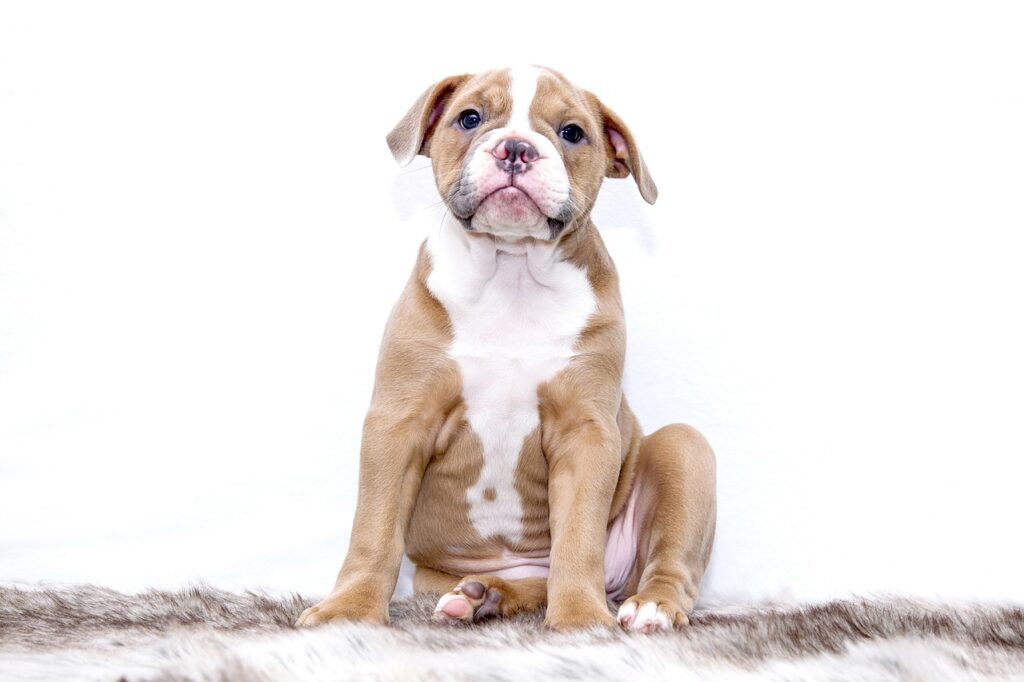Can Dogs Eat Zucchini? – Yes, They Can
Zucchini is a safe and healthy food option for dogs. Not only is it low in calories, making it a suitable treat for weight management, but it also contains essential nutrients that can benefit your furry friend. However, as with any human food, it’s important to serve zucchini to your dog in moderation and ensure it’s properly prepared without any added seasonings or oils that could be harmful.
Can Puppies Eat Zucchini?
Yes, puppies can have zucchini. It’s a nutritious vegetable that can aid their growth and development. But since puppies have sensitive digestive systems, introduce zucchini slowly into their diet and watch for any adverse reactions.
Things to consider when feeding zucchini to puppies?
When giving puppies zucchini, start with small amounts to see how they react. Ensure that the zucchini is cut into bite-sized pieces to avoid choking hazards. Additionally, because puppies require a balanced diet for their development, zucchini should only be a small part of their overall food intake.
Nutritional Benefits of Zucchini for Dogs – Why Zucchini is Good for Dogs
High in Essential Vitamins
Zucchini is packed with vitamins like B6, C, and K, which support your dog’s immune system, brain function, and bone health.
Rich in Dietary Fiber
The vegetable contains dietary fiber, which aids in digestion and helps to prevent constipation in dogs.
Low in Calories and Fats
With its low calorie and fat content, zucchini is an excellent choice for dogs that are overweight or require a low-fat diet.
Antioxidant Properties
Zucchini is known for its antioxidant properties that can help protect against cell damage and support your dog’s overall health.
Hydration
Since zucchini has a high water content, it can help to keep your dog hydrated, especially on hot days.
Potential Allergies: Can Dogs Be Allergic to Zucchini?
Though uncommon, dogs can be allergic to zucchini. If your dog is trying zucchini for the first time, monitor them for any signs of an allergic reaction.
Symptoms of Zucchini Allergies in Dogs
- Itching or Skin Irritation : If your dog starts scratching excessively or shows signs of skin discomfort after eating zucchini, they could be having an allergic reaction.
- Gastrointestinal Upset : Look out for symptoms like vomiting or diarrhea, which can be indications of a food allergy.
- Difficulty Breathing : In severe cases, an allergic reaction could lead to respiratory issues. Immediate veterinary attention is vital.
What to Do If Your Dog Shows Symptoms?
- Remove Zucchini from Diet: Stop feeding your dog zucchini if they show any adverse reactions.
- Consult a Veterinarian: Seek professional advice to manage the allergy symptoms and consider an allergy test if needed.
- Antihistamines: In some cases, vets may prescribe antihistamines to alleviate symptoms, but only administer medication as directed by a veterinarian.
Recommended Amount: How Much Zucchini Can a Dog Consume?
A small dog can have a couple of slices of zucchini, while larger dogs may handle a few more. However, zucchini should not make up more than 10% of your dog’s daily food consumption.
Things to Consider When Feeding Zucchini to Dogs
Ensure the zucchini is clean, unseasoned, and cooked without oils or fats. Also, chop it into manageable pieces to prevent choking and avoid feeding the hard stem or leaves.
How to Feed Zucchini to Dogs: A Quick Guide
Zucchini can be a delightful and nutritious treat for dogs when offered correctly. Here’s how you can incorporate this veggie into your dog’s diet.
Simple Steamed Zucchini Chunks
Steam zucchini until it’s soft but not mushy and let it cool before offering it to your dog as a healthy treat.
Zucchini Pawsicles
Blend zucchini with plain, unsweetened yogurt and freeze in an ice cube tray for a cool and refreshing summer treat.
Crunchy Zucchini Bites
Thinly slice zucchini and bake in the oven until crisp. These make for a great low-calorie crunchy snack for your pup.
Conclusion
Zucchini is a healthy, low-calorie treat for dogs in moderation. It’s important to introduce it slowly, watch for allergies, and maintain a balanced diet for your four-legged friend. Always ensure proper preparation without any harmful additives, and when in doubt, consult with your vet.



